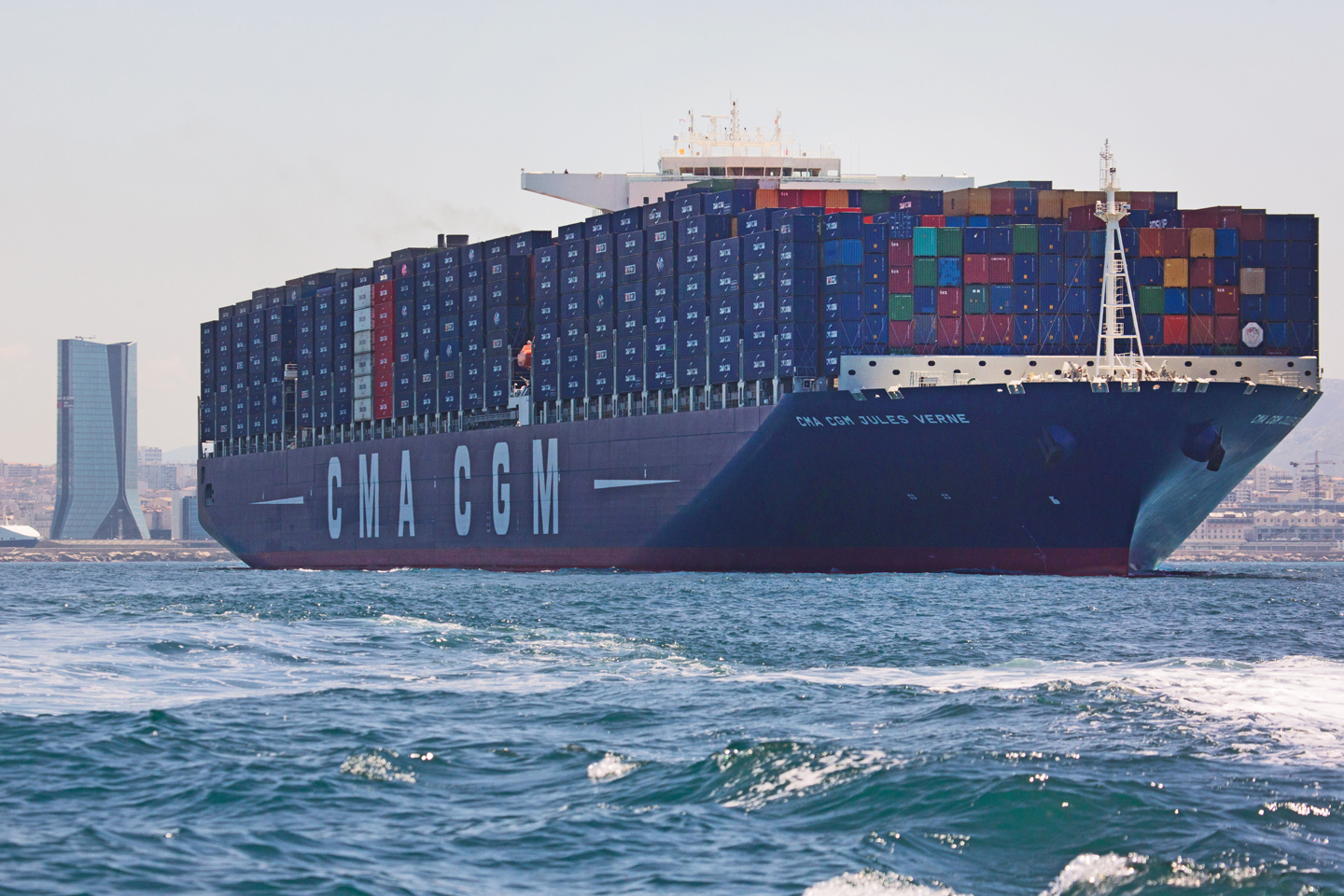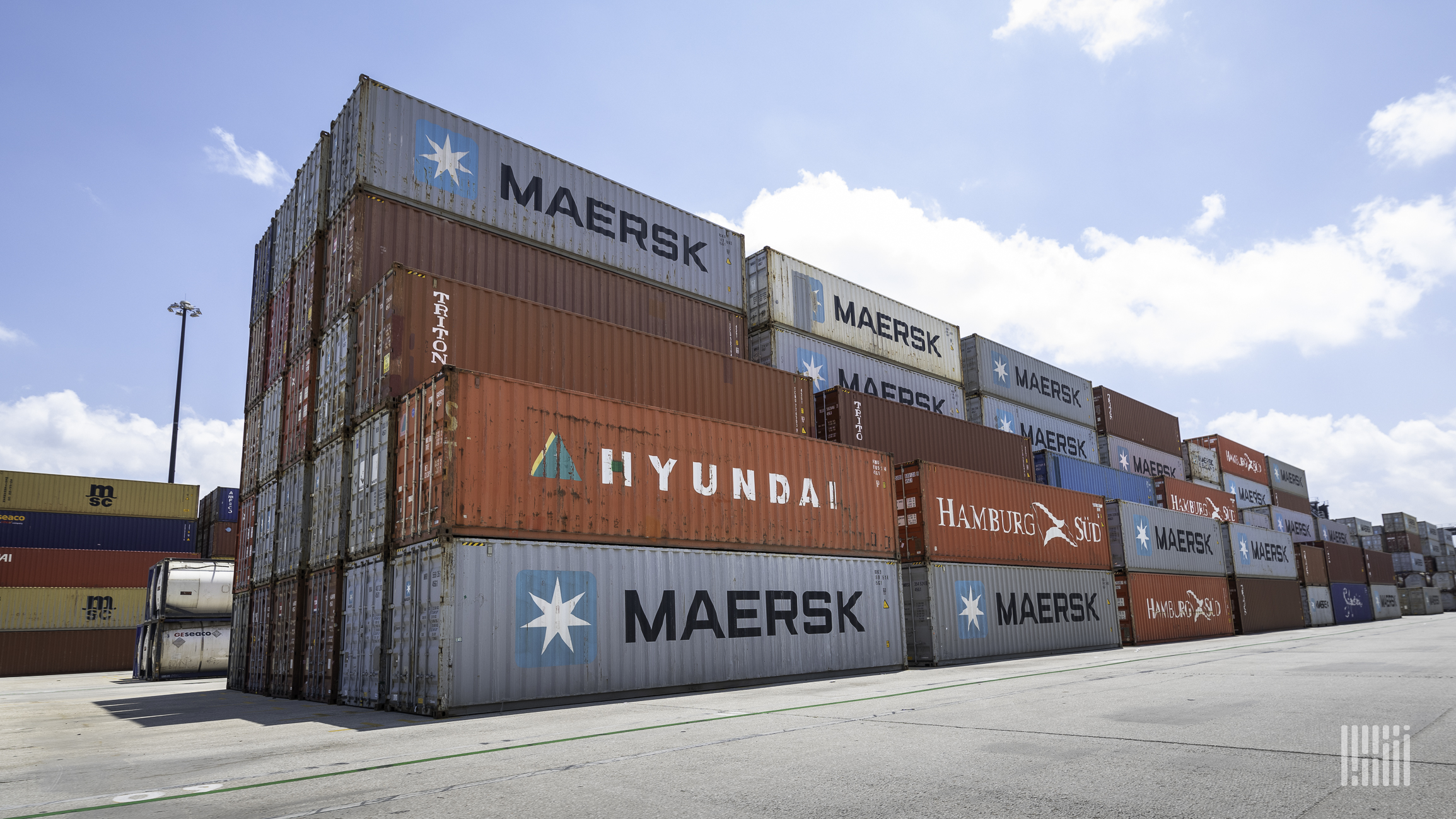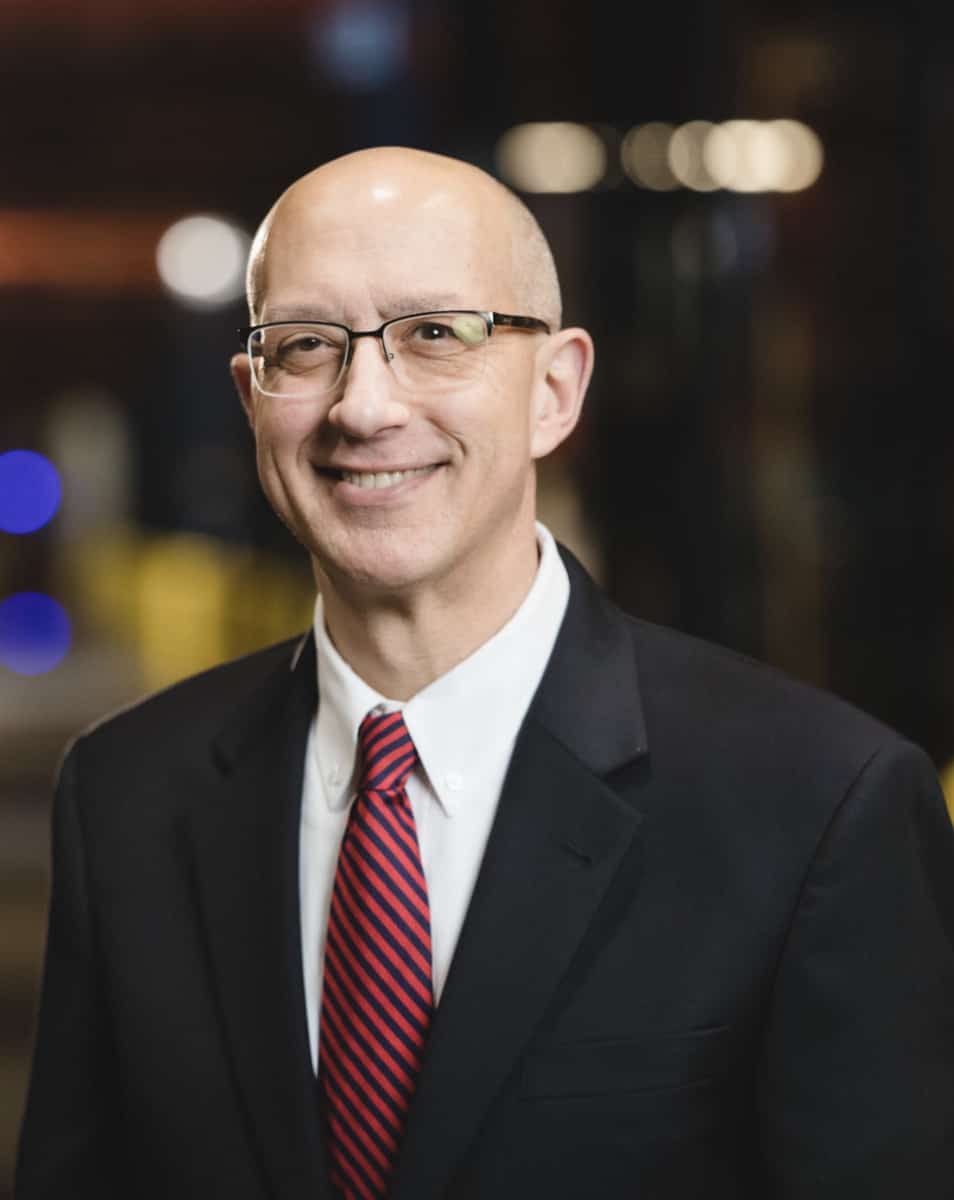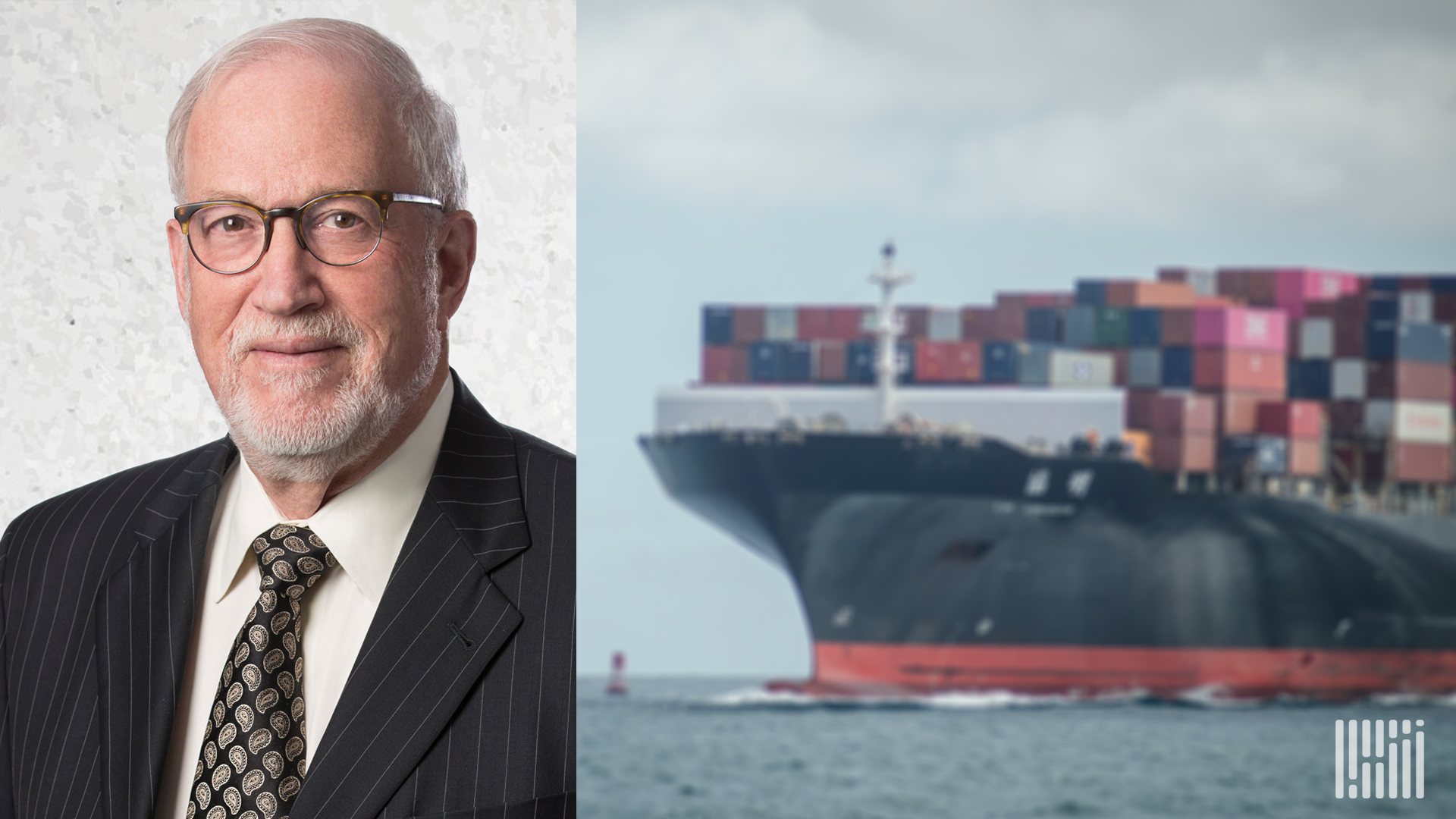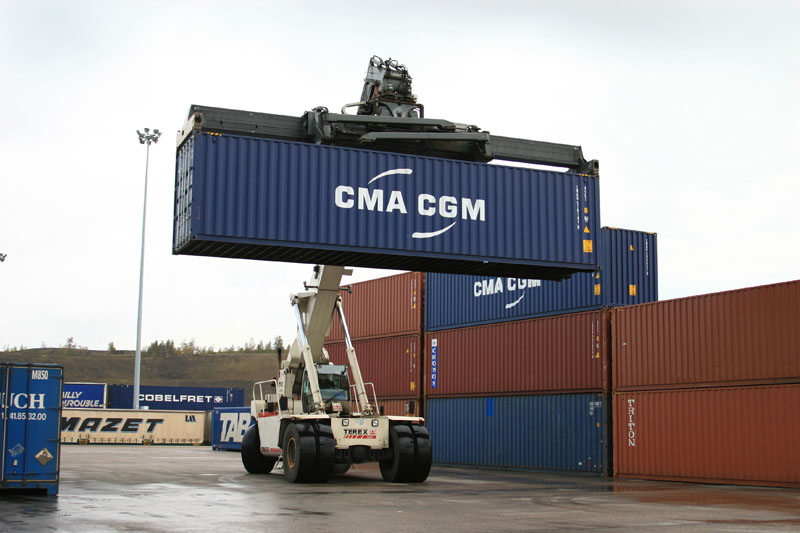Ed Greenberg plans to retire as general counsel for the National Customs Brokers and Forwarders Association of America (NCBFAA) at the end of December after 35 years of representing the ocean freight transportation intermediary industry in Washington.
Greenberg, 78, made the decision four weeks ago after spending the past six months working from his home office and enjoying the presence of his 2-year-old grandson.
“It had never occurred to me. I had no interest in retirement,” Greenberg told American Shipper in an interview. “But I have decided that it’s my time and I want to spend it with my grandson.”
Grounded in transportation law
Greenberg has spent his entire career in transportation law, first with the former Interstate Commerce Commission (ICC) heading up the agency’s Bureau of Enforcement concerning the regulations of truckers and freight forwarders.
After that, he led the government’s investigation of the cost overruns and rate regulation of the Trans Alaska Pipeline and successfully persuaded the ICC that it had the power and should suspend the excessively high rates of the pipeline. That decision was affirmed in a landmark case by the U.S. Supreme Court.
In 1978, Greenberg joined the firm now known as GKG Law of Washington, where he first worked on railroad rate cases.
In the mid-1980s, he was approached by a dozen non-vessel-operating common carriers (NVOCCs) to represent them in seeking refunds of the costs imposed by the steamship lines as a result of the so-called 50-mile rule. The rule, in essence, precluded NVOCCs from loading and unloading containers within 50 miles of an International Longshoremen’s Association-controlled port to preserve those jobs for longshore labor.
The battle was hard fought at the Federal Maritime Commission (FMC) and in the federal courts, but by the late 1980s the 50-mile rule was finally declared to be unlawful, and Greenberg was able to obtain millions of dollars in reparations for his NVOCC clients. It was also the start of a three-decade relationship with the NVOCC industry.
“I realized then that I was on the ground floor of an industry that was undergoing tremendous change,” he said.
It was also during this time that the NCBFAA’s then-general counsel Gerry Ullman notified Greenberg of his retirement and his interest in having him apply for the role. The association liked Greenberg’s credentials and brought him on board.
Greenberg said at that time the NCBFAA did not have a strong NVOCC presence. Most of its prowess was aimed at customs broker and freight forwarder issues. But the industry was changing dramatically as the intermediaries began taking on a much larger role facilitating the movement of cargo in large part because of the nature of containerization and the need for significantly more logistics services than the carriers could provide.
“I think I was useful in getting various government agencies to appreciate the role of NVOs and the NCBFAA in the international supply chain,” he said.
NVOCCs earn respect
In the early 1990s, there was an underlying hostility toward NVOCCs within several federal agencies in charge of freight transportation regulations. “I think they believed that NVOs were a bunch of guys operating in dark rooms figuring out how to cheat shippers and carriers and not offering any value,” Greenberg said.
Greenberg used his role as the NCBFAA’s general counsel to alter the federal government’s perception of NVOCCs, and through his representation on legislative and regulatory issues on behalf of the association successfully changed agency views of this burgeoning industry.
Greenberg has always preferred to take a measured tone with the FMC’s commissioners and staff, despite seeming indifference at times to how the regulations and policies tended to stifle the growth and efficiencies of intermediaries.
“My relationship with the FMC as a whole was never needlessly adversarial even when we didn’t see eye to eye on all issues, but I did feel that there were offices within the agency that at times could be inappropriately hostile to the NVOs and forwarders,” he said.
Over the past 20 years, Greenberg said he has noticed a substantive change within the FMC to be both more cognizant of the value of intermediaries and more receptive to the NVOCC industry’s concerns.
Since the enactment of the 1998 Ocean Shipping Reform Act, the FMC has considered the role of NVOCCs far more favorably in its regulatory actions. For example, in the early 2000s, the NCBFAA worked with the FMC successfully to press the Chinese government to allow non-Chinese NVOCCs to operate more freely in that market and issue their own bills of lading.
There have also been a number of other deregulatory actions taken by the FMC that have tended to ease unnecessary regulatory burdens on this inherently competitive side of the transportation industry, he said.
Greenberg cited, as a prime example, his work with the FMC to develop the exemptions that allowed the industry to enter into NVOCC rate arrangements (NRAs) and NVOCC service arrangements in a manner more reflective of today’s service contracts between shippers and ocean carriers. And, with additional deregulatory changes, the NRA process now effectively eliminates the need for rate tariffs, a goal that Greenberg had long sought.
In addition to interfacing with the FMC, and again working through the NCBFAA, Greenberg was instrumental during the 1990s and early 2000s in working with the Census Bureau’s Foreign Trade Division and Customs and Border Protection to develop regulations and procedures that permit NVOCCs to become responsible for electronically filing their own shipment data with the agencies without having to share proprietary information with or rely on the various underlying carriers.
He takes pride in the NCBFAA’s recent role in working with both the Coast Guard and FMC to ensure that NVOCCs are exempt from the “verified gross mass” requirement for containerized shipments, which he called “a terribly inefficient, costly and unnecessary requirement for NVOCCs in the U.S.”
Ongoing issues
During the past two years, Greenberg helped the NCBFAA members voice their concerns to the FMC over unfair demurrage and detention charges imposed on them by the ocean carriers.
Demurrage pertains to the time an import container sits in a container terminal, with carriers and terminals assessing significant charges when containers are not moved in or out within the applicable free time. Detention relates to shippers or NVOCCs holding containers outside the marine terminals beyond the established free-time period.
For years, shippers and NVOCCs have complained to the FMC about being forced to pay unfair and costly demurrage and detention fees whenever container equipment cannot be returned or picked up by their truckers during the free period for reasons beyond their control.
The FMC’s recently issued interpretative rule on these issues will, Greenberg hopes, work to make the process fairer and not penalize NVOCCs or shippers when the delays are not their fault.
Greenberg continues to worry, however, about the competition and supply chain impacts to NVOCCs and shippers if the ocean carrier industry should further contract. “I would hate to see what happened to the rail industry after 1980 happen to the ocean carrier industry,” he said.
He opined that it was essential for the FMC to use its authority to ensure that the trend toward consolidation through ocean carrier alliances does not stifle competition or that the agency consider seeking legislative authority to control carrier behavior in the absence of real competition in the ocean carrier industry.
While Greenberg will miss his relationship with the NCBFAA and clients, he has no regrets stepping down at this time.
“The staff and members of the association continue to work for the common good and make the industry ever more professional,” he said. “It has been an honor to have been a part of this remarkable organization for so many years. Similarly, I have treasured the opportunity to work closely with other clients and government officials over this time and build wonderful relationships that I will not forget.”
NCBFAA’s changing of the guard
The NCBFAA in recent years has undergone a changing of the guard in terms of management, as younger members increase their roles and responsibilities in the association.
NCBFAA’s Washington lobbyist Jon Kent, 74, retired last September after 35 years of representing the association on Capitol Hill. Before year’s end, the association selected Washington-based government relations and consulting firm Whitmer & Worrall to be its representative on legislative matters.
Greenberg said GKG Law colleagues David Monroe and Katie Meyers will continue to represent the NCBFAA as transportation counsel and general counsel, respectively.
NCBFAA staff and members expressed both appreciation for Greenberg’s decades of work to improve the industry’s position in the supply chain and regret for his soon-to-be departure.
“His retirement is bittersweet,” said NCBFAA President Jan Fields. “While I am thrilled that he will be retiring to spend more time with his grandchild, we will surely miss his strong leadership and expertise as an icon in our industry.”
Related News
FMC examines ocean carrier billing practices
NCBFAA appoints new Washington representative
NCBFAA’s longtime lobbyist rounds bases
Click for more FreightWaves/American Shipper articles by Chris Gillis.


